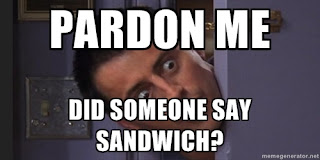Have you ever written a masterpiece, forgotten about it for a few days, and come back to find it littered with discordant phrases or scenes? We’ve all had that experience. And when faced with our own less-than-stellar work, sometimes we’re tempted to throw it all away and start over, or worse, give up.
Let me tell you a story.
Recently I sat down at my piano after several weeks away. My fingers danced across the keys. I felt my shoulders relax and the tension of the day bleed away. But very soon I noticed a problem. Low D wasn’t working. No matter how hard or soft I pressed, no matter how I concentrated and bit my lip, no music came from Low D.
What could I do?
I could go ahead and play a symphony without Low D. I might pretend I didn’t notice or didn’t mind, like I wasn’t cringing every time the note didn’t play. I could improvise by adding in the even Lower D. That might make up for it. Sort of.
But after a few tries, I was ready to pull my hair out.
I could quit playing piano. People quit things all the time. They change their life direction. Reprioritize. And piano is hard work. There’s lots of practice to achieve any sort of mastery. And while there are rewards, there are also problems, like notes that don’t work. It wouldn’t be a big deal for me to give it up, would it?
The thing is, I love playing piano. I love the way it feels to have my fingers move as if by magic while beautiful music fills the room. I love how the songs I play elicit emotion in other people. It can comfort them, stir their spirits, or make them think.
Sounds a lot like writing, doesn’t it? Back to the broken piano...
Another option would be to open it up and try to figure out what’s going wrong. This is usually my first approach. Poke around, find what’s broken, and try to fix it. Sometimes I take the piano apart, piece by piece. Not an easy task and not for the fainthearted. Sometimes I even manage to solve the problem on my own.
But often, I need outside help, a piano tuner, who can spot problems I overlook and who knows how to make the piano sing.
Writing is a lot like that, too. When we come back to a project and find it in need of repair, there are vital steps to take to refine our story and make it sing.
Take some time away from your draft.
Taking a break from what you’re writing and viewing it with fresh eyes is often an illuminating experience. You will see your work in new ways. You will spot areas that need a little polish or maybe a heavy rewrite. Don’t be afraid of this. The purpose of early drafts is to get the words on the page. Then you make them pretty.
Put on your editing hat
Do overall story editing first – plot, character, pacing, etc. There’s no point in refining sentences to perfection when you might end up throwing them out later to adjust for larger, overarching issues.
After you’re comfortable with your large-scale changes, then focus on perfecting imagery and sentence structure.
Don’t be afraid to share
One of the best ways to see if your story is working is to share it with friends, or better yet, a critique group. Put on your thick skin and be prepared for questions suggestions. If you get some, that’s a great thing. No one bothers making suggestions if the work is a disaster. Ask people what they liked and what they didn’t. This can help your story development as well as your writing overall.
Hire help
Even the best stories receive professional editing. A good editor has a pulse on the market and can help position your book to excel. They can help your story hit the emotional and plot points you’re shooting for and identify areas where you need to put in a little extra work.
Best of luck as you polish your masterpiece!
As for me, I’ll be calling a piano tuner this afternoon.



















